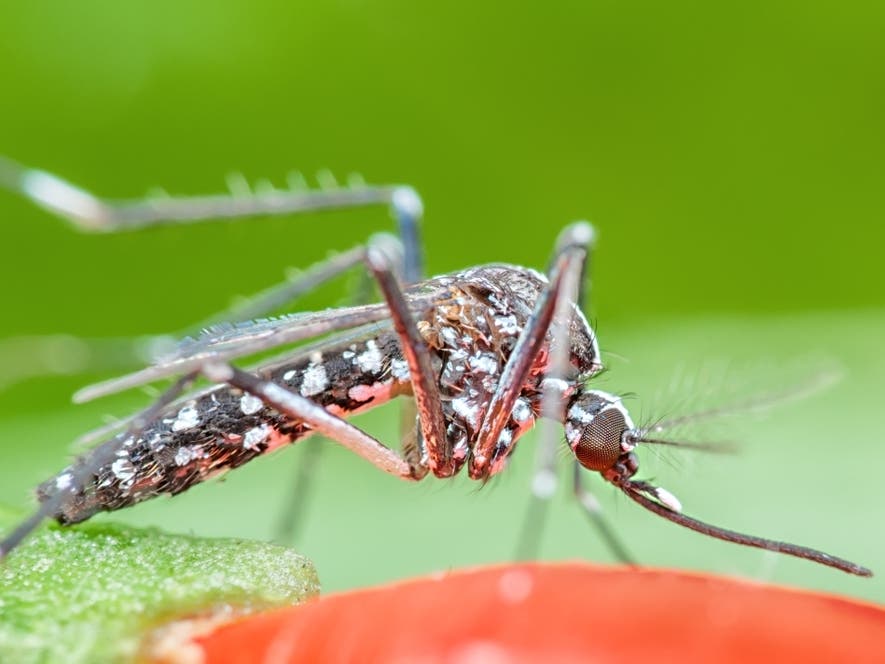Health & Fitness
1st Case Of West Nile Virus Infection Discovered This Year In CT: DPH
DPH is advising Connecticut residents to break out the DEET and other measures to protect themselves from mosquito bites.

CONNECTICUT —A New Haven County woman is the first Connecticut resident to test positive for West Nile virus this season, the state Department of Public Health announced Friday.
Last year, seven cases of WNV infection were reported in the state.
The patient is between 60–69 years of age, and became ill during the first week of August, according to a news release from DPH. She has since recovered. Laboratory tests confirmed the presence of antibodies to WNV.
Find out what's happening in Across Connecticutwith free, real-time updates from Patch.
West Nile virus has been detected in Connecticut every year since 1999 and is the most prevalent mosquito-borne disease in the US. Most people infected with WNV do not develop symptoms. About one in 5 people who are infected develop West Nile fever, an illness which includes a fever and other symptoms such as body aches, joint pain, headache, or a rash. About one out of 150 infected people develop a severe illness affecting the central nervous system. About one out of 10 cases of severe illness are fatal. People over the age of 60 are at highest risk of serious illness, according to DPH.
Symptoms of WNV include fever, headache, myalgia, arthralgia, rash, or gastrointestinal symptoms for non-neuroinvasive disease, while neuroinvasive signs and symptoms can include high fever, headache, stiff neck, and decreased consciousness.
Find out what's happening in Across Connecticutwith free, real-time updates from Patch.
"The first report of a human case of WNV this season along with the ongoing detection of WNV-infected and Eastern Equine Encephalitis-infected mosquitoes in Connecticut and in neighboring states makes this an important time for health care providers to maintain a high index of suspicion for WNV and EEE," said DPH Commissioner Manisha Juthani, MD.
Mosquitoes require water for reproduction. DPH offers this guidance to residents:
- Eliminate standing water suitable for mosquitoes. Dispose of water-holding containers, such as ceramic pots, used tires, and tire swings.
- Drill holes in the bottom of containers such as those used for recycling.
- Clean clogged roof gutters.
- Turn over objects that may trap water when not in use, such as wading pools and wheelbarrows.
- Change water in bird baths on a weekly basis.
- Clean and chlorinate swimming pools. When pools are not in use, use pool covers and drain when necessary.
As mosquitoes require a blood meal for reproduction, DPH suggests the following measures to help reduce bites from mosquitoes that feed on people:
- Minimize outdoor activities at dusk and dawn when mosquitoes are most active.
- Wear shoes, socks, long pants, and long-sleeved shirts. Clothing material should be tightly woven and loose-fitting.
- Wear clothing and gear treated with permethrin. Permethrin is an insecticide that kills or repels mosquitoes.
- Use mosquito netting when sleeping outdoors.
- Consider the use of CDC-recommended mosquito repellents, containing DEET, Picaridin, IR3535, oil of lemon eucalyptus, para-menthane-diol, or 2-undecanone, and apply according to directions, when it is necessary to be outdoors.
- When using DEET, use the lowest concentration effective for the time spent outdoors (for example, 6 percent lasts approximately two hours and 20 percent for four hours) and wash treated skin when returning indoors. Do not apply under clothing, to wounds or irritated skin, the hands of children, or to infants less than two months old.
- Be sure door and window screens are tight-fitting and in good repair to avoid mosquito bites when indoors.
More information on West Nile virus and how to prevent mosquito bites can be found on the Connecticut Mosquito Management Program website.
Get more local news delivered straight to your inbox. Sign up for free Patch newsletters and alerts.